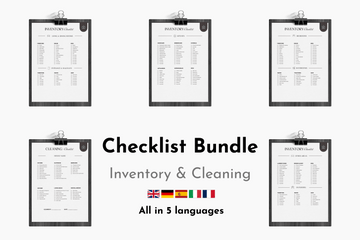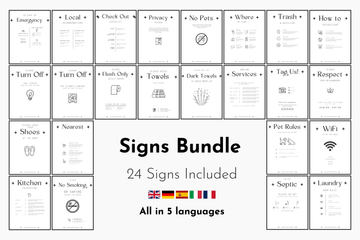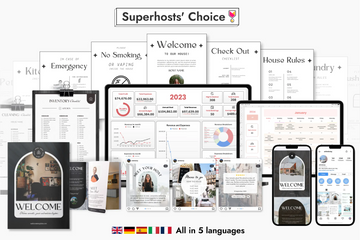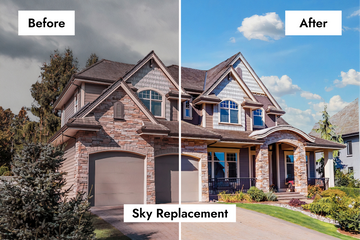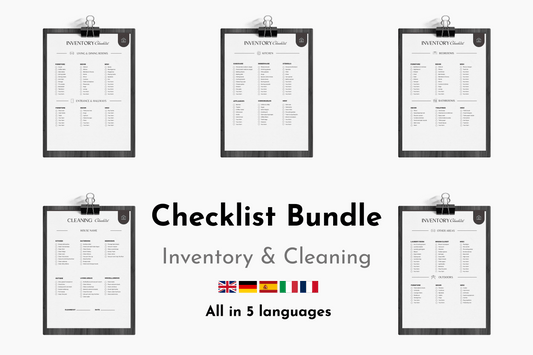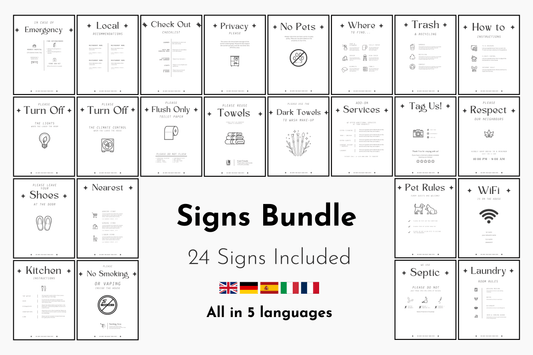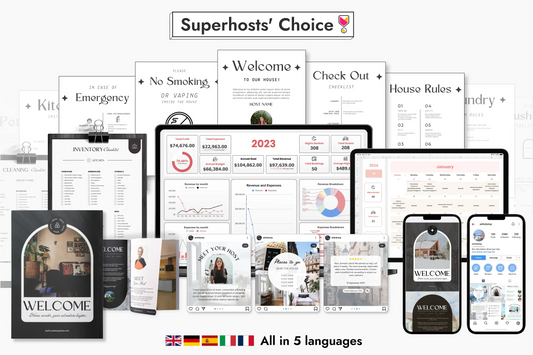Implementing guest surveys is an effective way for Airbnb hosts to gather feedback, improve the guest experience, and enhance their listings. Well-designed surveys can provide insights into what guests appreciate and what could be improved. Here’s a guide to implementing guest surveys effectively:
1. Importance of Guest Surveys
- Feedback for Improvement: Guest surveys allow you to understand your guests' experiences and identify areas for improvement.
- Enhance Guest Experience: By acting on feedback, you can make adjustments that lead to higher guest satisfaction and better reviews.
- Build Trust and Reputation: Showing that you value guest opinions and are willing to make changes can enhance your reputation as a host.
2. Types of Guest Surveys
- Post-Stay Surveys: These surveys are sent to guests after their stay to gather feedback on their overall experience.
- Mid-Stay Check-Ins: A brief survey during the stay can help identify and address issues before they become significant problems.
- Pre-Arrival Surveys: These can be used to gather information on guest preferences or special requests before they arrive.
3. Designing Effective Surveys
- Keep It Short: Aim for a survey that takes no more than 5-10 minutes to complete. Focus on key areas like cleanliness, comfort, amenities, and communication.
- Use a Mix of Question Types: Combine multiple-choice questions, rating scales (e.g., 1 to 5 stars), and open-ended questions to gather both quantitative and qualitative feedback.
- Be Specific: Ask targeted questions about specific aspects of the stay, such as “How would you rate the cleanliness of the bathroom?” or “Did the kitchen meet your expectations?”
- Include a General Feedback Section: Allow guests to provide any additional comments or suggestions in an open-ended section.
4. Survey Distribution
- Timing: Send post-stay surveys shortly after guests check out to ensure the experience is fresh in their minds.
- Delivery Method: Use email, messaging platforms like WhatsApp, or Airbnb’s messaging system to distribute the survey. Some hosts also use survey tools like Google Forms or SurveyMonkey.
- Incentivize Responses: Consider offering a small incentive, such as a discount on a future stay or a local guide, to encourage guests to complete the survey.
5. Key Areas to Address in the Survey
- Overall Satisfaction: “How satisfied were you with your stay?”
- Cleanliness: “Was the property as clean as expected?”
- Communication: “How would you rate the host’s communication?”
- Accuracy: “Did the property description and photos match the actual property?”
- Amenities: “Were all listed amenities available and in good condition?”
- Comfort: “Was the bed comfortable? Did you sleep well?”
- Value for Money: “Did you feel that the stay provided good value for the price?”
- Suggestions for Improvement: “What could we do to improve the experience for future guests?”
6. Analyzing Survey Results
- Identify Trends: Look for common themes or recurring issues in guest feedback. This can help prioritize areas for improvement.
- Quantitative Analysis: Use the ratings and scores to measure performance over time and identify areas where you consistently score low.
- Qualitative Insights: Pay attention to detailed comments and suggestions, which can provide valuable insights beyond what numerical ratings offer.
7. Taking Action on Feedback
- Prioritize Feedback: Address the most critical issues first, such as cleanliness or major amenities that affect guest comfort.
- Communicate Changes: Let guests know that you’ve made improvements based on their feedback. This can be highlighted in your listing description or future communication with guests.
- Continuous Improvement: Use the feedback loop to continuously refine and enhance the guest experience.
8. Best Practices
- Personalize the Survey: Address the guest by name and mention specific details about their stay to show that the survey is tailored to their experience.
- Respect Guest Privacy: Ensure that the survey is voluntary and respect any privacy concerns. Avoid asking for sensitive or intrusive information.
- Thank Guests for Participation: Always thank guests for taking the time to provide feedback, regardless of whether the feedback is positive or negative.
9. Common Challenges
- Low Response Rates: Not all guests may be willing to fill out a survey. To improve response rates, keep surveys short and offer incentives.
- Handling Negative Feedback: It’s important to approach negative feedback with an open mind and view it as an opportunity for growth rather than criticism.
10. Using Feedback for Marketing
- Highlight Positive Feedback: Use glowing reviews and high ratings from your surveys in your listing description or social media to attract new guests.
- Address Past Issues: If you’ve made improvements based on guest feedback, mention this in your listing to show that you’re committed to providing a better experience.
Implementing guest surveys is a proactive approach to maintaining high standards for your Airbnb property. By gathering and acting on guest feedback, you can continually improve your listing, enhance guest satisfaction, and ultimately increase bookings.



